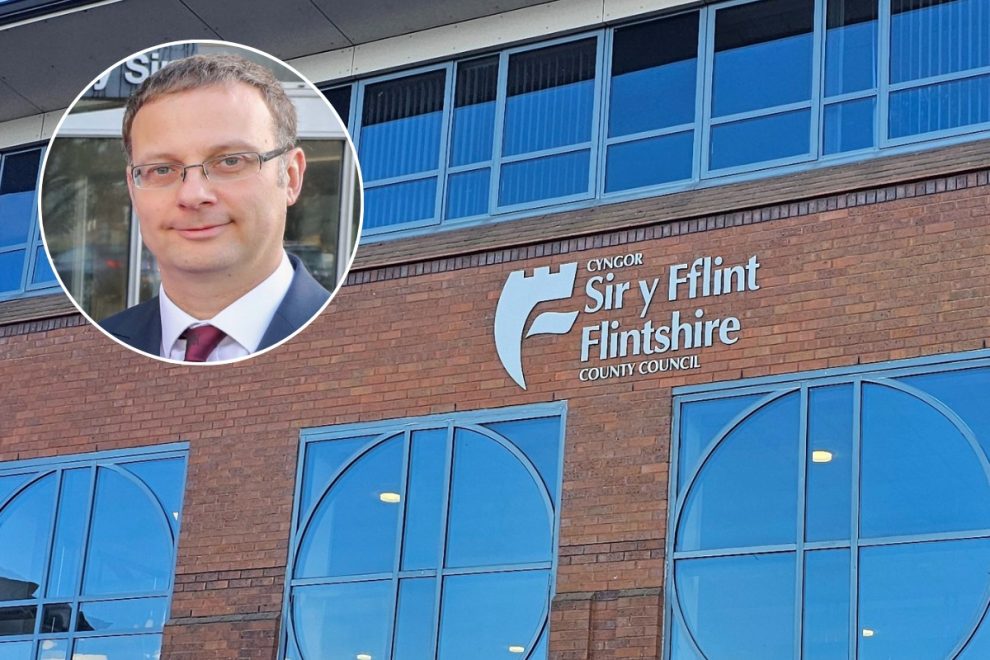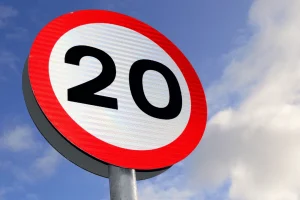A FLINTSHIRE County Council officer has taken the unusual step of directly responding to misinformation on social media during a committee meeting.
Democratic Services Manager Steve Goodrum opened a discussion on councillors pay by addressing claims that councillors vote for their own pay rises.
Posts claiming that Flintshire councillors have been voting for their own pay have spread like wildfire on social media channels amid a backlash against the authority’s decision to raise council tax by 9.5%.
Councillors are in line for a 5.2% pay increase based on the independent and legally binding recommendations of the Independent Remuneration Panel for Wales (IRPW).
“I’d like to correct some comments on social media,” he told Flintshire County Council’s Constitution and Democratic Services Committee.
“Members do not set their own salaries, they are set by a wholly independent group. I say again, members are not voting for a salary increase.”
Residents’ anger over rising council tax has caused some to hit out at the rise – claiming on Facebook and other social media sites that councillors are voting to give themselves a pay rise while increasing council tax for everyone else.
However, the council is not lawfully permitted to reject the recommendations, which will see pay for councillors in Band B authorities across Wales – including Flintshire – rise from £18,666 to £19,771 from April. That is a 5.2% increase on 2024/25.
The leader’s salary will increase from £62,298 to £66,727, cabinet members will go up from £37,799 to £40,036 and there will be an increase for committee chairs and the leader of the largest opposition group from £27,999 to £29,657.
Individual members are permitted to refuse to take their allowances from council, but there was a warning that official guidance from the IRPW clearly states that council groups should not reject pay en-masse to make a political point.
In its most recently published guidance, the IPRW states: “While relevant authorities are required to make payments in accordance with the determinations of the panel, members are not obligated to accept these payments.
“Each relevant authority should encourage and enable members to accept the payments they are entitled to as recompense for the role they undertake. Remuneration arrangements reflect the public service undertaken on behalf of others and in part are in place to enable reasonable expenses to be covered.
“Relevant authorities should ensure members are not discouraged from accepting and or claiming for payments they are entitled to receive. This includes discussion about whether individuals are intending to take up payments and or allowances in open fora, such as council or other meetings, where individuals could feel pressure to adopt a particular approach.
“Where members elect not to accept the payments relevant authorities must ensure each member is aware they can elect not to receive part or all of the particular payment.”
Holywell Central Cllr Ted Palmer said he was concerned that in the current economic climate some members who rely on the payments may feel pressure to forego them.”

“I worry that councillors will feel pressure not to take their allowances, ” said Holywell Central Cllr Ted Palmer.
“Some may feel pressure from their political peers or residents but that is not fair. There are members of the council who need that money as their income and I think it’s wrong that people who may need it may feel under pressure to not take it.
“Similarly those who choose not to should not be able to take any kudos from not accepting it.”
Mr Goodrum said that the advice from the IRPW was clear. Councillors and political groupings may not pressure councillors to not accept their pay. Individual councillors must make that decision for themselves.
“The panel has always been consistent that members should be encouraged to take their allowances,” he said. “They recognise that councillors at all levels of democracy down to town and community councils take decisions that have an impact on people’s lives. They have a significant responsibility.
“Councils, groups or other peers should not apply pressure to members at any level not to take remuneration that is decided based on an understanding of that responsibility. It’s down to individual members whether they take it or not.”
Broughton North East Cllr Billy Mullin added: “It’s down to individuals. I would like to remind members we’re not getting any younger. If we’re going to encourage younger members to join the council we need to be fair on pay.
“We need to keep in line with other industries and the pay of today.”














